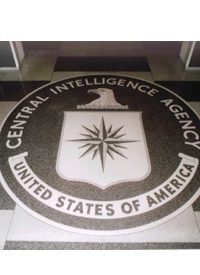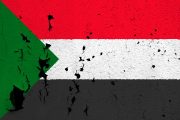
The files were found by journalists and the activist group Human Rights Watch in the Tripoli headquarters of former External Security Organization chief Moussa Koussa. They show that both the CIA and its British counterpart, MI-6, turned captured enemies of the Qaddafi regime, including suspected al-Qaeda operatives, over to the Libyan dictator. Both the United States and Great Britain sent terrorist suspects to Libya for questioning, knowing the country's reputation for brutal interrogation techniques. Some of the documents included warnings to the Libyan government to respect the human rights of the detainees, the New York Times reported.
"It can't come as a surprise that the Central Intelligence Agency works with foreign governments to help protect our country from terrorism and other deadly threats," CIA spokeswoman Jennifer Youngblood told the Times, though she did not comment specifically about the documents. Their authenticity could not be verified, the Times said, and none was written on agency letterhead. But documents in the External Security office included at least three binders marked CIA and two labeled MI-6. One of the CIA documents included a list of 89 questions for the Libyan government to ask a suspect. Another offered to "deliver Shayk Musa to your physical custody, similar to what we have done with other senior L.I.F.G. [Libyan Islamic Fighting Group] members in the recent past." American officials believed that the LIFG, dedicated to the overthrow of Qaddafi, had ties to al-Qaeda.
When the Libyan government asked the CIA for another LIFG member, Abdullah al-Sadiq, the agency promised to "take control" of Sadiq and his pregnant wife in Bangkok "and place them on our aircraft for a flight to your country," according to a faxed message found in one of the CIA binders. Human Rights Watch said other documents showed "Sadiq" was really Abdel Hakim Belhaj, now commander of the Tripoli Military Council.
In an interview this week, Belhaj described his detention with details that matched many of those in the documents, the Times reported. He also said that when he was held in Bangkok he was tortured by CIA. agents. In Libya he spent six years in solitary confinement, he said.
"Definitely it was very hard, very difficult," he said of his capture and confinement. "Now we are in Libya, and we want to look forward to a peaceful future. I do not want revenge." Belhaj and others once considered enemies in the war on terror now occupy key positions in a new government that the United States and NATO allies are assisting with military and financial aid. The documents are from 2002 to 2007, a time when the United States considered the Qaddafi regime an ally in fighting terrorists.
"Let's keep in mind the context here," said an unnamed U.S. official quoted in the Wall Street Journal. "By 2004, the U.S. had successfully convinced the Libyan government to renounce its nuclear-weapons program and to help stop terrorists who were actively targeting Americans in the U.S. and abroad."
Koussa, who became foreign minister in 2009, was credited with negotiating an end to Western sanctions against Libya in exchange for an abandonment of its weapons-of-mass-destruction program. But he also headed the nation's foreign intelligence and security operations at a time when the Qaddafi regime was believed to be funding and supporting terrorist groups. In 1980, he was expelled from a diplomatic post in England for calling, in a newspaper interview, for the killing of Libyan dissidents in Great Britain, the Journal reported. Libya claimed he had been misquoted.
During the time period covered in the documents discovered this week, it is clear that both United States and British officials considered Koussa a useful ally in the practice known as "rendition," by which terror suspects are sent to Middle East nations for interrogation. In some cases, Libya requested custody of a suspect. In others, the United States took the initiative. In an April 15, 2004 letter, the CIA offered a captured suspect, saying: "We respectfully request an expression of interest from your service regarding taking custody." The documents show that the CIA and Libyan intelligence worked closely together on the apprehension and interrogation of suspects. "We are eager to work with you in the questioning of the terrorist we recently rendered to your country," the CIA's Stephen Kappes wrote in a memo, adding that he would like to send two agents to Libya to question a suspected terrorist. In 2004, the CIA also asked for permission to interview Iraqi scientists living in Libya in an effort to find out what happened to Iraq's alleged weapons of mass destruction.
The correspondence suggests that the relationship was not only cooperative, but quite cordial. A memo from Kappes to Koussa, suggesting a permanent CIA presence in Libya, began "Dear Musa" and was signed "Steve."
A CIA document concerning the rendition of a prisoner cited "our requirements for debriefings" and sought an assurance from the Libyans that "human rights will be respected." Official U.S. policy is that prisoners will only be sent for interrogation to countries that grant such assurances. "There are lots of countries willing to take terrorists off the street who want to kill Americans," a U.S. official told the Wall Street Journal. "That doesn't mean U.S. concerns about human rights are ignored in the process."
Great Britain was also involved in rendering prisoners to Libya, according to the CIA documents, including one that indicated the British were involved in an effort to extradite to Tripoli a suspected militant leader held in Hong Kong for immigration violations. A document in the MI-6 folder suggests the British may have been working more closely with Libya than with the United States. Concerning the British role in turning a suspect named Abu Abd Alla over to the Libyans, an unsigned fax notes "This was the least we could do for you to demonstrate the remarkable relationship we have built over recent years…. Amusingly we got a request from the Americans to channel requests for information from Abu Abd through the Americans. I have no intention of doing any such thing."
Libya's new military chief claims he and his allies among the rebel forces that have taken control of Tripoli have no ties to al-Qaeda "We focused on Libya and Libya only," Belhaj told the New York Times. "We never had any link with Al Qaeda, and that could never be. We had a different agenda; global fighting was not our goal." What effect, if any, the history of American and British aid in supplying prisoners to Qaddafi will have on their relations with the rebels now in power has yet to be determined. For Belhaj, the matter may be more personal than political.
"If one day there is a legal way," he said. "I would like to see my torturers brought to court."
Related article:



